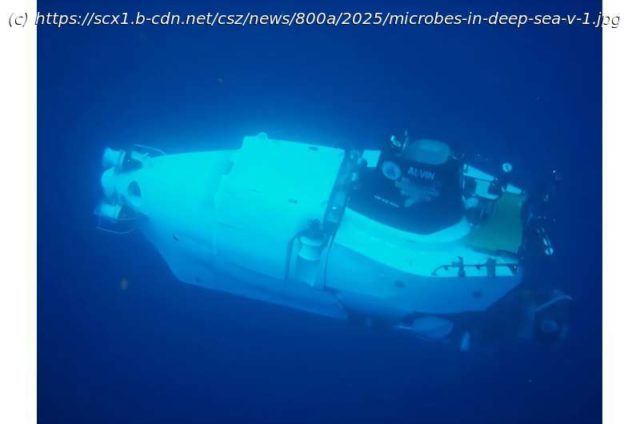People have long wondered what life was first like on Earth, and if there is life in our solar system beyond our planet. Scientists have reason to believe that some of the moons in our solar system—like Jupiter’s Europa and Saturn’s Enceladus—may contain deep, salty liquid oceans under an icy shell. Seafloor volcanoes could heat these moons‘ oceans and provide the basic chemicals needed for life.
People have long wondered what life was first like on Earth, and if there is life in our solar system beyond our planet. Scientists have reason to believe that some of the moons in our solar system—like Jupiter’s Europa and Saturn’s Enceladus—may contain deep, salty liquid oceans under an icy shell. Seafloor volcanoes could heat these moons‘ oceans and provide the basic chemicals needed for life.
Similar deep-sea volcanoes found on Earth support microbial life that lives inside solid rock without sunlight and oxygen. Some of these microbes, called thermophiles, live at temperatures hot enough to boil water on the surface. They grow from the chemicals coming out of active volcanoes.
Because these microorganisms existed before there was photosynthesis or oxygen on Earth, scientists think these deep-sea volcanoes and microbes could resemble the earliest habitats and life on Earth, and beyond.
To determine if life could exist beyond Earth in these ocean worlds, NASA sent the Cassini spacecraft to orbit Saturn in 1997. The agency has also sent three spacecraft to orbit Jupiter: Galileo in 1989, Juno in 2011 and most recently Europa Clipper in 2024. These spacecraft flew and will fly close to Enceladus and Europa to measure their habitability for life using a suite of instruments.
However, for planetary scientists to interpret the data they collect, they need to first understand how similar habitats function and host life on Earth.
My microbiology laboratory at the University of Massachusetts Amherst studies thermophiles from hot springs at deep-sea volcanoes, also called hydrothermal vents.
I grew up in Spokane, Washington, and had over an inch of volcanic ash land on my home when Mount St. Helens erupted in 1980. That event led to my fascination with volcanoes.
Start
United States
USA — IT Microbes in deep-sea volcanoes can help scientists learn about early life on...






